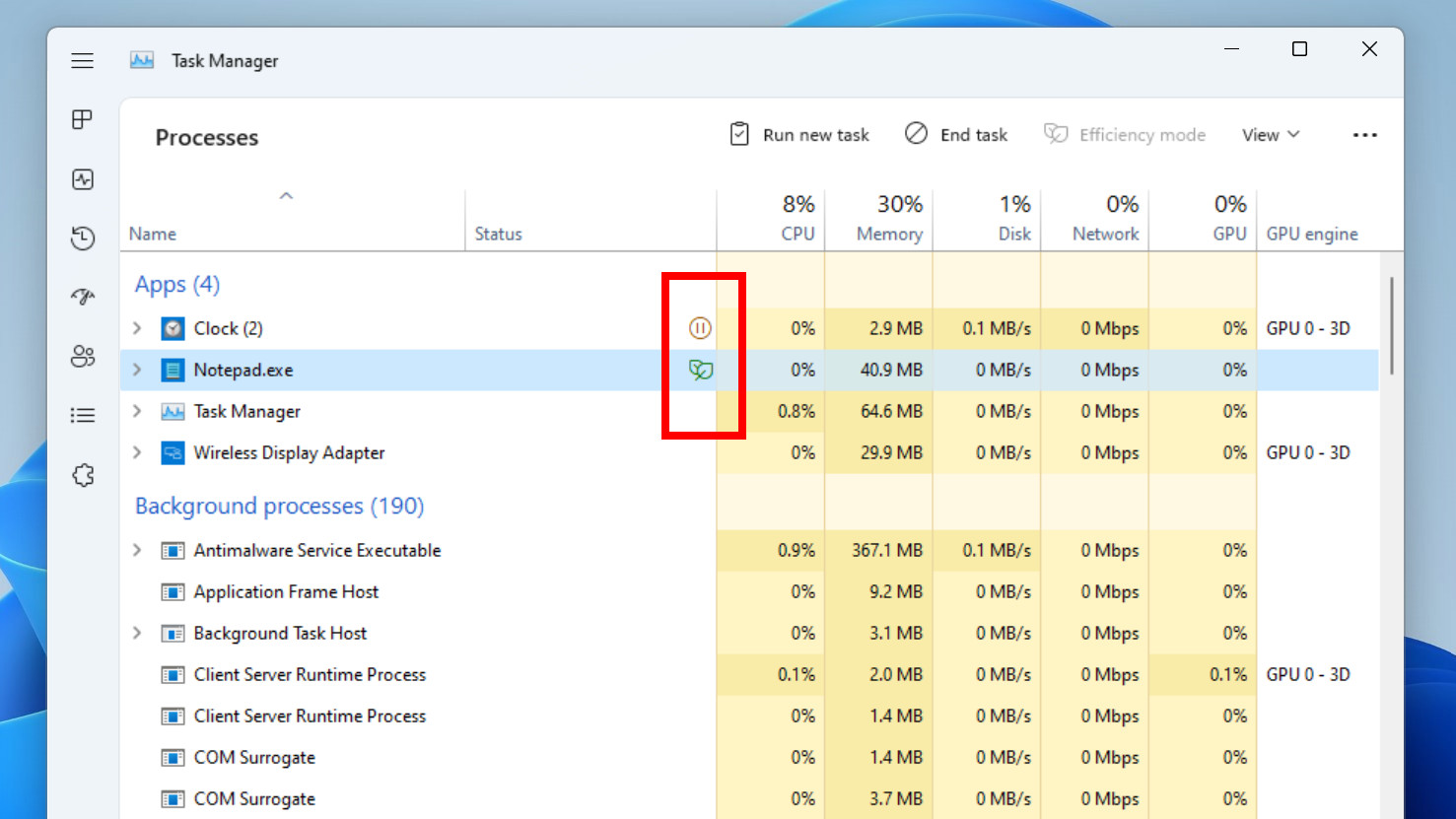Windows 11 has just given the Task Manager a smart new feature to tame apps which are being resource hogs, something that could help, well, everyone of course, but especially laptop users thanks to ensuing battery life benefits.
Note that this change is just in preview right now, with the new Build 22557 deployed to testers earlier this week, which comes complete with a host of useful moves, including a revamp of the Task Manager.
You may recall that the Task Manager has been given a makeover to bring its appearance more in line with Windows 11’s sleeker and modern look, plus a honed interface, but there’s another big introduction in Build 22557 and that’s Efficiency mode.
The idea with this feature is that when you spot an app which is using a ton of system resources (CPU, GPU, memory, or maybe all of them!) in the Task Manager, rather than killing it to free resources – which you may not want to do, or could have unfortunate consequences – you can switch it to operate in Efficiency mode.
As Microsoft makes clear, this will push the application in question right down the priority list when it comes to system resource allocation, thereby taming its resource usage, making your PC more responsive – if it was chugging under the weight of that particular workload – and providing better energy-efficiency.

Apps or services which are in Efficiency mode will be marked with a small leaf icon, with suspended apps having a pause icon (as seen in the above screenshot).
Note that some processes may not be eligible for Efficiency mode, like core Windows services for example, where deprioritizing them could actually affect system performance negatively and slow your machine down. In these cases, the option to turn on Efficiency mode will be greyed out, ensuring you can’t do any harm when playing with this new tool.
Analysis: Microsoft is taking it slowly with Efficiency mode
Efficiency mode will doubtless prove a useful ability for Windows 11 users whose machines are running sluggishly thanks to an app which is dominating resource usage, as it makes it easy to tame such a process without having to entirely dump it.
As we mentioned at the outset, it’ll likely be a particularly valuable asset for those running Windows 11 on a laptop, where overly demanding applications don’t just slow down the system, but spike power usage and therefore drain more battery. With these kinds of programs tamed via Efficiency mode, users can expect to have more overall battery life, one of the prime concerns for mobile computing.
As noted, this is just in testing right now, but it’s not available to all testers just yet, and is rolling out to a small number of Windows Insiders to begin with. Microsoft sounds like it’s taking this one cautiously and is going to “monitor feedback and see how it lands before pushing it out to everyone.”
We can expect Efficiency mode to debut with Windows 11 22H2 when it arrives in the second half of this year.
- Check out our guide to Windows 11 problems and how to fix them
from TechRadar - All the latest technology news https://ift.tt/IiTb1u5
via IFTTT
Comments
Post a Comment